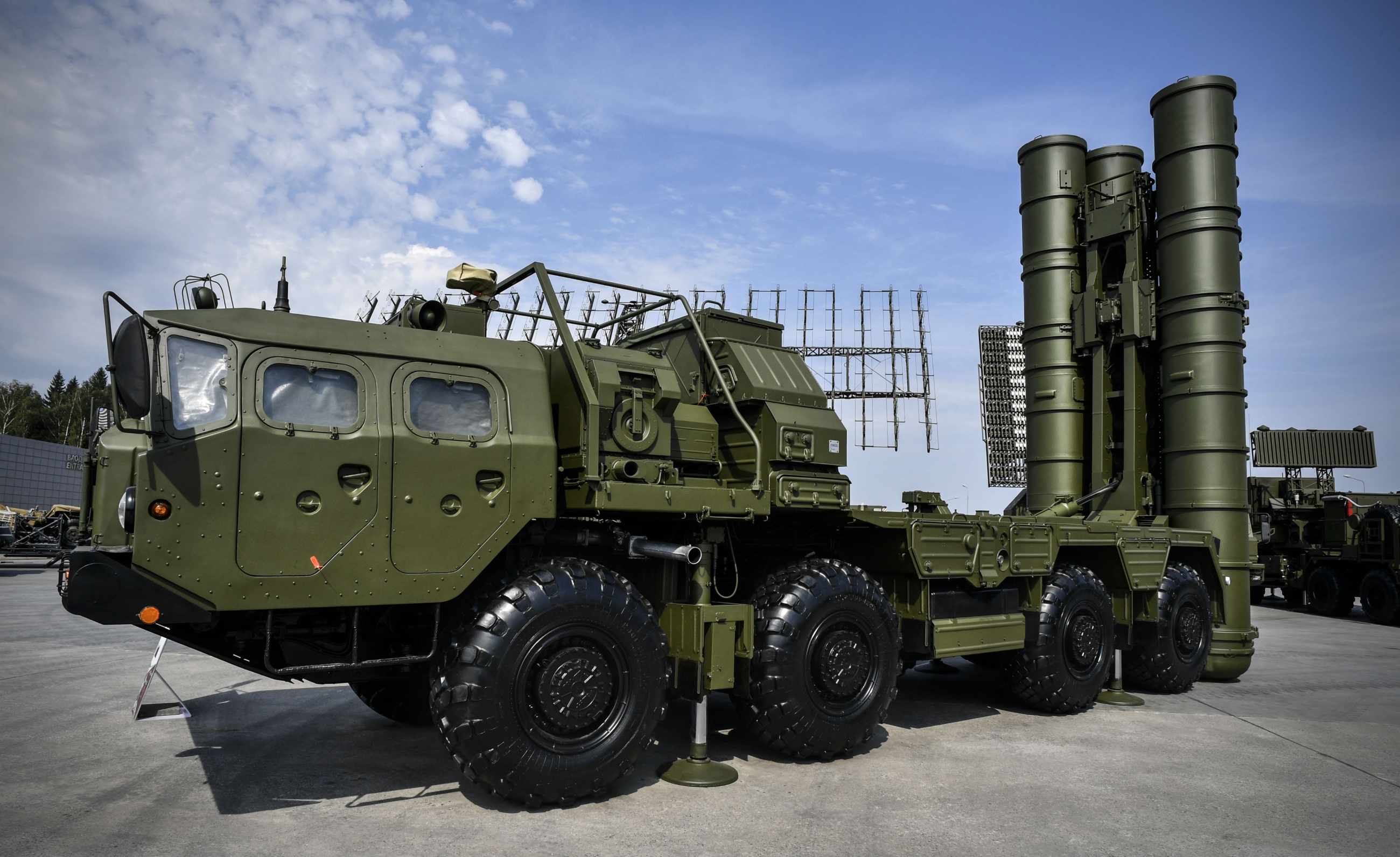Turkey denies US placed sanctions deadline over S-400 deal

A senior Turkish official denied on Thursday that the United States had threatened Turkey with sanctions if Ankara failed to cancel its purchase of a Russian-made S-400 air defence system by the first week of June.
Rather, Turkish sources have told Middle East Eye, Washington is searching for temporary solutions to the diplomatic crisis.
Yavuz Selim Kiran, a deputy Turkish foreign minister, told journalists in Washington that Ankara had received no sanctions deadline warning from the US.
“The stories claiming that the US handed such a threat to Turkey isn’t true,” he said, referring to a CNBC article published on Wednesday reporting that Washington was about to unleash a barrage of sanctions that could risk Turkey’s position in NATO.
'The stories claiming that the US handed such a threat to Turkey isn’t true'
- Yavuz Selim Kiran, deputy foreign minister
Multiple Turkish officials, speaking anonymously, told Middle East Eye that Wednesday's report misunderstood a June deadline Washington had set for Turkey to purchase a US-made Patriot missile system instead of the S-400s.
New MEE newsletter: Jerusalem Dispatch
Sign up to get the latest insights and analysis on Israel-Palestine, alongside Turkey Unpacked and other MEE newsletters
No sanctions were threatened by the US were the deadline to pass without Turkey taking up the offer, the sources said.
“The latest offer on the systems was delivered in late March. It expires in the first week of June. This is about it,” a Turkish official told MEE.
Turkey is keen to purchase Patriot missile systems from its NATO ally. However, Washington is adamant that no deal can be struck if Ankara buys the S-400 system from its rival Russia.
Turkish Defence Minister Hulusi Akar said earlier this week that Turkey didn’t have any intention to terminate the deal with Russia, to the extent that Ankara had already sent military officials to Moscow to receive training on how to run the S-400 systems.
The threat of sanctions
The threat of US sanctions does exist, however.
On Wednesday, the US House of Representatives Foreign Affairs Committee passed a resolution calling for sanctions against Ankara under the Countering America’s Adversaries Through Sanctions Act (CAATSA) if the S-400 deal isn't torn up.
The resolution also says Turkey should be removed from the F-35 stealth fighter programme, in which NATO allies collaborate in the warplane's production, because the presence of an S-400 system would compromise the classified technology.
“We are still engaged in talks to purchase Patriots. But we also ready ourselves against any possible US sanctions,” Akar said.
Turkish officials claim their country's S-400 purchase doesn’t fall in the scope of CAATSA because it was agreed in 2017, almost a year before Congress ratified the act. Ankara expects the US to begin the sanctions process once the missiles are physically transported to Turkey mid-summer.
Meanwhile, US officials continue to push for alternative offers to find a temporary solution to the crisis.
Turkish officials told MEE that earlier this month the US had submitted a proposal to delay the S-400 delivery for nine months, including putting a freeze on any training programmes connected with the system.
“The proposal seemed to be engineered by the State Department to get some concessions from us in return for facilitating President Donald Trump’s visit to Ankara this summer,” a Turkish official said.
MEE previously reported that the White House and Turkish President Recep Tayyip Erdogan had agreed on a date for Trump to conduct a state visit to Turkey.
However, the state visit could coincide with the delivery of the first batch of S-400s - awkward timing for the Trump administration.
“This is why we are now also discussing a meeting between Trump and President Tayyip Erdogan on the margins of G-20 summit in late June,” the official said.
Middle East Eye delivers independent and unrivalled coverage and analysis of the Middle East, North Africa and beyond. To learn more about republishing this content and the associated fees, please fill out this form. More about MEE can be found here.





